3 iconic Austin restaurants join our 2023 Austin360 Restaurant Hall of Fame
If you want to get a sense not only of a city’s history but of what makes it what it is today, look to great restaurants that have stood the test of time.
They are places that foster community, nourish us and help us understand where and with whom we live.
I established the Austin360 Restaurant Hall of Fame in 2021, a year in which many of us had heightened our appreciation for the people and places that made our world special, to celebrate these kinds of restaurants.
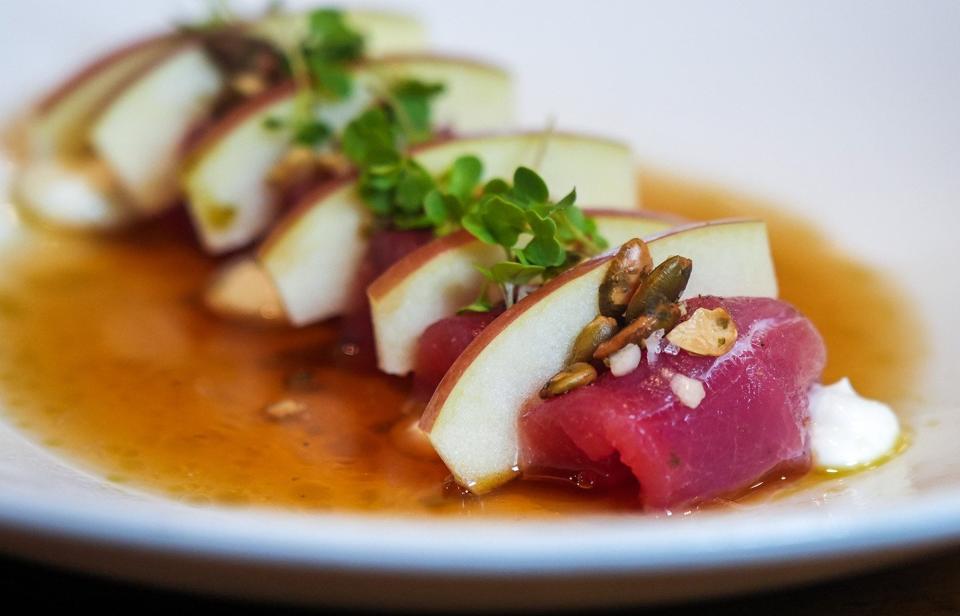
All of these places are rich in personal narrative and give insight into who and what make Austin a special place to dine and live.
2023 Dining Guide: Here are 20 of the best new restaurants in Austin
(Restaurants must be open and operating for at least 20 years to be considered for inclusion. You can see a full list of 2021 and 2022 awardees at the end of this story.)
Our 2023 Austin360 Restaurant Hall of Fame
Joe's Bakery & Coffee Shop: 'We’re Mexican-Americans and we embrace our culture'
Magnolia Cafe: 'You have to pay attention to people. You have to be involved.'
Uchi: 'That one staircase changed my whole life'
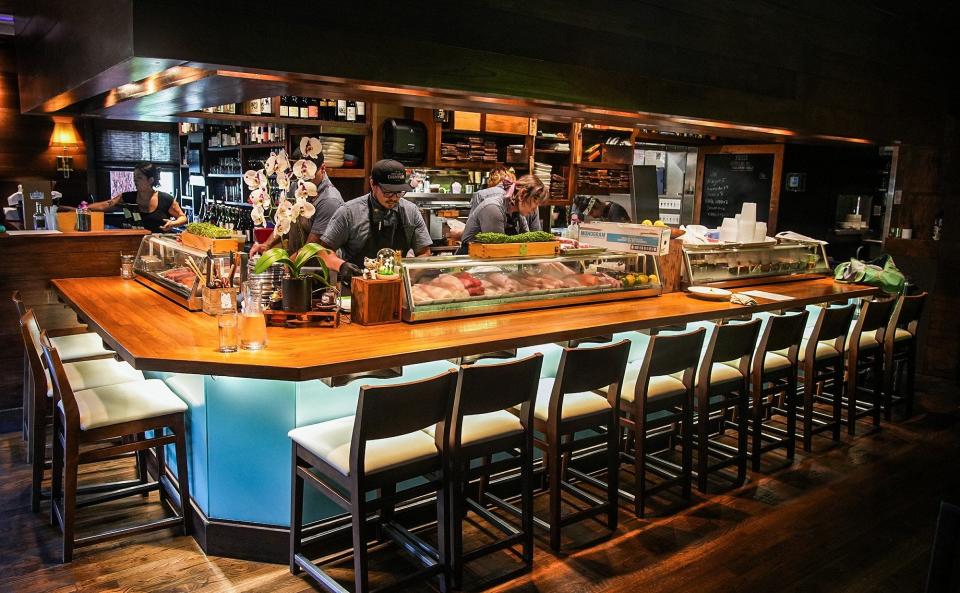
But for a combination of one man’s desperation and luck, Austin diners wouldn’t know the glories of bigeye tuna served with apple and goat cheese or understand that candied quinoa is the perfect way to finish a piece of flounder. And the city wouldn’t have one of its best and most famous restaurants.
Tyson Cole quit his job as an assistant general manager at AppleTree Grocery on South Lamar Boulevard in 1993 after a bigger chain purchased it and offered him half his salary for a lesser position.
His search for a new job had not gone well. Pounding the pavement downtown looking for work, he visited dozens of establishments. Confronted by a locked door at the Elephant Room jazz club, he was turning back toward Congress Avenue when he noticed a nondescript staircase.
More disappointment greeted him when he entered sushi restaurant Kyoto at the top of the stairs. They, too, weren’t hiring. He pleaded. When he agreed to work both lunch and dinner shifts, they hired him as a dishwasher and server. The following week began a 10-year journey to the 2003 opening of Uchi, the restaurant that, along with Franklin Barbecue, has come to symbolize the Austin dining scene.
An introduction to sushi
The creation of the most identifiable sushi restaurant in Texas, one that soon will have locations that span from California to New York, didn’t come from a lifelong fascination with Japan or a young cook’s dream. Simply a need for a job.
But once at Kyoto, Cole, who was born in Sarasota, Fla., and spent his adolescence in the Woodlands, fell in love with the hospitality, rituals, culture, honor, customs and cuisine of Japan. He became best friends with Kyoto sushi chef Kiyohisa Hara, who taught him how to make Japanese food and with whom he would watch VHS tapes of the Japanese television show “Iron Chef.”
“I just dove in and loved everything about it,” Cole said. “That one staircase changed my whole life.”
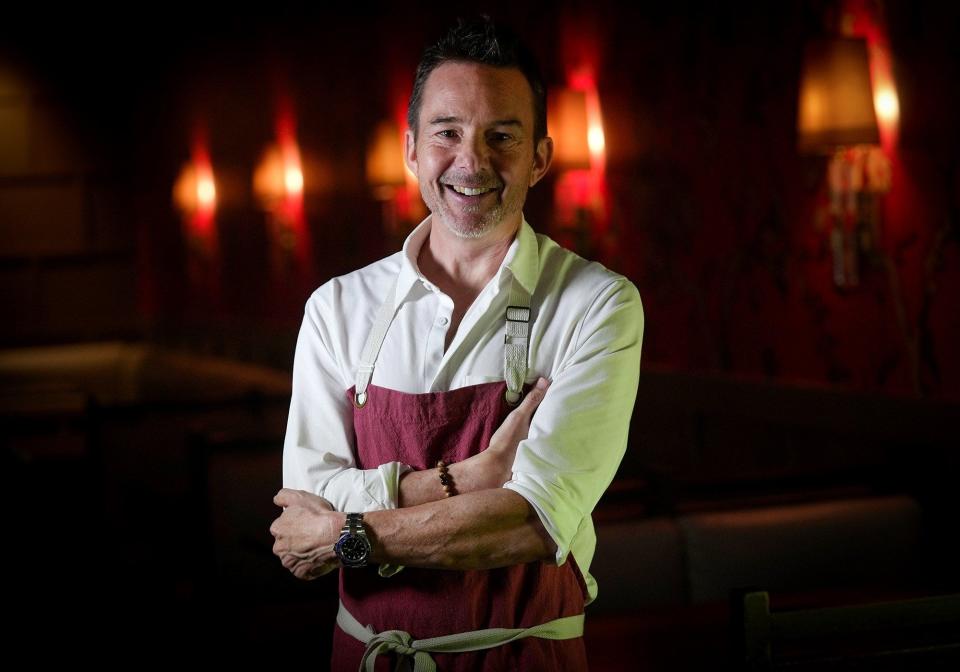
Cole, who at first was banned from working the sushi bar because having a Caucasian making sushi would be a bad look for the restaurant, spent about 18 months preparing sushi in the kitchen before he was allowed up front.
The man who spent his teens and early 20s painting on canvas had found his new creative medium. He immediately fell in love with the tactile experience of wielding the knife and slicing the fish, executing pieces of nigiri and handing them to excited guests whose expressions would change upon eating.
“Sushi making is all about this level of finesse and precision,” Cole said. “There’s so much skill in making real-time art that is consumed. It was what I was meant to do.”
That desire to bring immediate pleasure to guests was the seed that gave rise to Cole’s quest to create “perfect bites,” the guiding idea behind his future restaurant.
“My whole career is based on guests. They push me everyday,” Cole said.
The "big leagues"
After two-and-half-years at Kyoto, Cole’s career took a leap to “the big leagues” when he persuaded Takehiko “Smokey” Fuse to let him work at the chef’s Musashino, even though Cole could not (yet) read or write Japanese.
The man whom Cole calls his sensei introduced Cole to a higher level of quality in everything from knives to cutting boards to fish. Fuse also took Cole to visit Japan, which deepened the young chef’s passion for Japanese culture and cuisine. As Cole’s career blossomed at Musashino, at least one person was taking notice.
Redefining the sushi experience
Entrepreneur Daryl Kunik, who started Ace Tailors and was a partner in Austin bars like Red Fez and Oslo, was a regular guest at both Kyoto and Musashino and had been impressed by Cole’s work ethic. He approached Cole about opening a restaurant. In March 2003, the duo, backed with a small amount of money from a handful of investors, opened Uchi in a 1920s South Lamar Boulevard bungalow that had been home to French restaurant Si Bon and Skyline Grill before it.
Their objectives diverged in places – Cole admits he wanted to open the best sushi restaurant in America, an ambition to which Kunik was indifferent – but the two sushi lovers shared one critical goal: bring an exceptional and unique experience to diners.
“How do you really bring it to the customer? How do you create a customer experience? Very few sushi restaurants in the country were really thinking about the customer, and I think that’s what he and I saw,” Kunik said.
Cole wanted to translate the sushi bar experience to every customer, whether they were sitting at a table in the restaurant with a name that translates to “house,” or perched at the rail 5 feet from the chefs.
“It’s about organization. It would take an incredibly well trained staff that was passionate about it, too,” Cole said. “And this culture, where they would come to work everyday wanting to replicate that. That was out of necessity in the beginning. I couldn’t do what I wanted without a staff like that. The staff here is so passionate everyday, the culture is so consistent. There’s so much buy-in. And that pretty quickly became ‘Uchi.’”
The service at Uchi, swift, knowledgeable and warm but not intrusive, helped define a new era of fine dining in Austin hospitality, and the cuisine was unlike any the city had experienced. Fuse had admonished Cole to stay true to the traditions he learned at Musashino, but Cole was driven by a creativity and craft that took on new dimensions when joined by the forces of his kitchen staff.
The perfect bite
Uchi served cold and hot dishes in addition to its regular roster of sushi and daily specials, and Cole tapped the talent in his kitchen to bring a new look, feel and taste to his sushi. Working in tandem with what the kitchen was producing, Cole created new “yakumi” to place on top and alongside his sushi.
Cole was smoking yellowtail with applewood one day while a chef in the kitchen was making thinly sliced yuka chips for another special. Cole threw the smoked fish on a chip and complemented it with a Marcona almond and slice of Asian pear. The restaurant’s famed machi cure was invented. The dish remains on the menu all these years later.
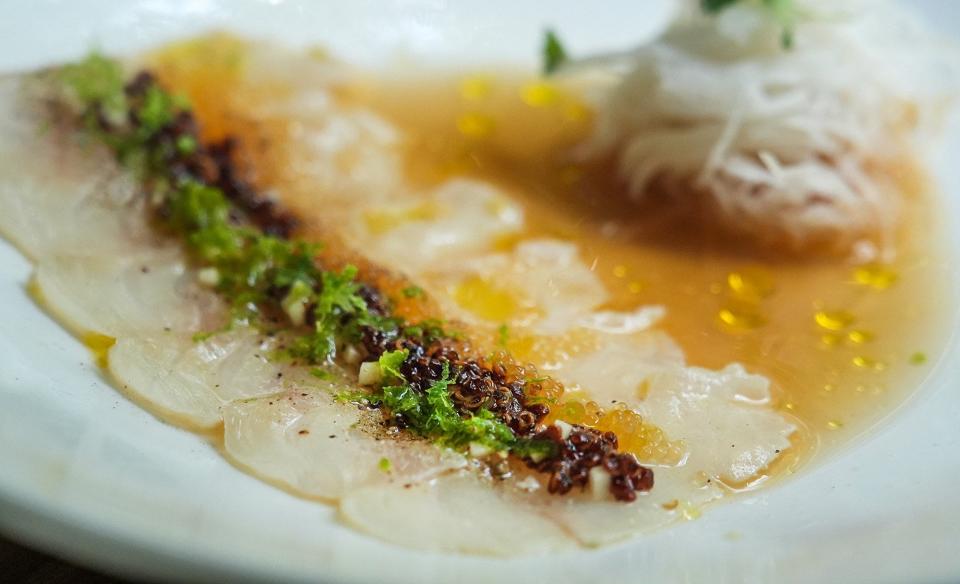
The same is true of a dish of bigeye tuna with creamy goat cheese, pumpkin seed oil and sweet apple. And when pastry chef and eventual director of culinary operations Philip Speer candied some quinoa grains for a dessert, Cole realized they would make a perfect topping for a velvety slice of flounder.
“The yakumi is symbolic of where my sushi and myself went to. I was trying to make it more appealing to the American people,” Cole said. “It’s all about the guests. Make me something new today. Make me something different. It’s Uchi food because of the talent. I never imagined having talent at this level.”
The yakumi are the finishing touches on Cole’s perfect bites, additions that offer textural counterpoints and highlight and blend fattiness and acidity. As former Food & Wine senior editor Kate Krader told the American-Statesman when the magazine honored Cole as one of the country’s best new chefs in 2005, a moment that forever changed the restaurant’s trajectory, Cole had proven himself “as someone who can so seamlessly combine an Asian sensibility and an American shopping list.”
Cole’s emphasis on collaboration and his encouragement of staff to always make things a little better have driven the success of the restaurant.
“He created a space for creativity, excitement and collaboration, a place that allowed the cuisine and concept to evolve in a way that he led but he put into the hands of the experienced and knowledgeable people around him,” Speer said.
'I didn't imagine any of this'
Cultivating and empowering staff led to the creation of the first Uchi spin-off, Uchiko, in 2010, which highlighted the Southeast Asian influences of its opening executive chef, Paul Qui. It was around that time that Kunik drafted an email detailing what the company would need to do if they wanted to expand, something Cole had never dreamed of when they first opened.
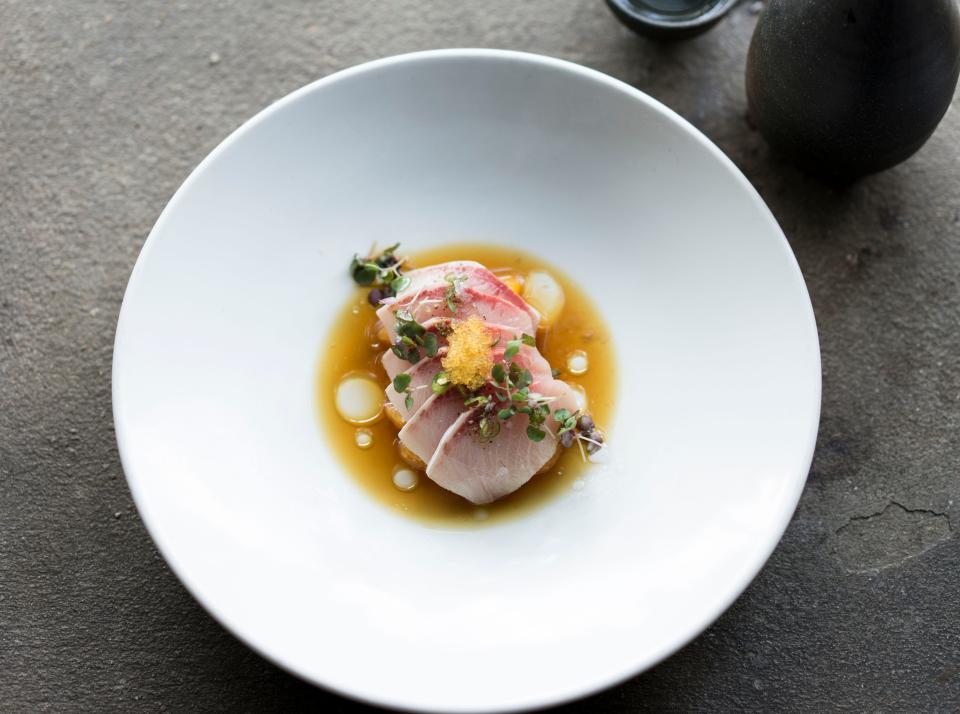
The restaurant group (which would later be rebranded as Hai Hospitality) brought on hospitality veteran John Baydale as a partner, an operations expert whom Kunik said became the third piece they needed to allow for growth, and opened Uchi Houston in 2012. It would be the first of several Uchi locations to open outside of Austin, with Dallas arriving in 2015 and Denver in 2018.
Private-equity firm KSL Capital Partners purchased a majority share of Hai Hospitality in 2020, the same year Kunik began his exit from the company. Hai added Uchi Miami in 2021, and Uchi locations are planned for Los Angeles and Scottsdale in 2023 and New York City in 2025.
The restaurant that started with a few dozen on staff is now part of a hospitality group with 1,000 employees, a number that Cole says will likely double in the next few years. Cole’s influence on the dining scene isn’t just measured by the number of Uchi locations in the country. The restaurant was home to at least a dozen chefs and at least one front-of-house employee who have gone on to guide some of the best restaurants in Texas and beyond.
“That’s your legacy. I wasn’t as good as them in a lot of ways,” Cole said of his employees past and present. “The best part is vicariously watching the talent grow their careers. It makes you feel so proud. There’s so much honor. Without them I’d be nothing. And now, being at a national level, it makes you want to cry. I didn’t imagine any of this. It’s nuts.”
25 iconic dishes: They give a taste of Austin dining then and now
Joe's Bakery & Coffee Shop: 'We’re Mexican-Americans and we embrace our culture'
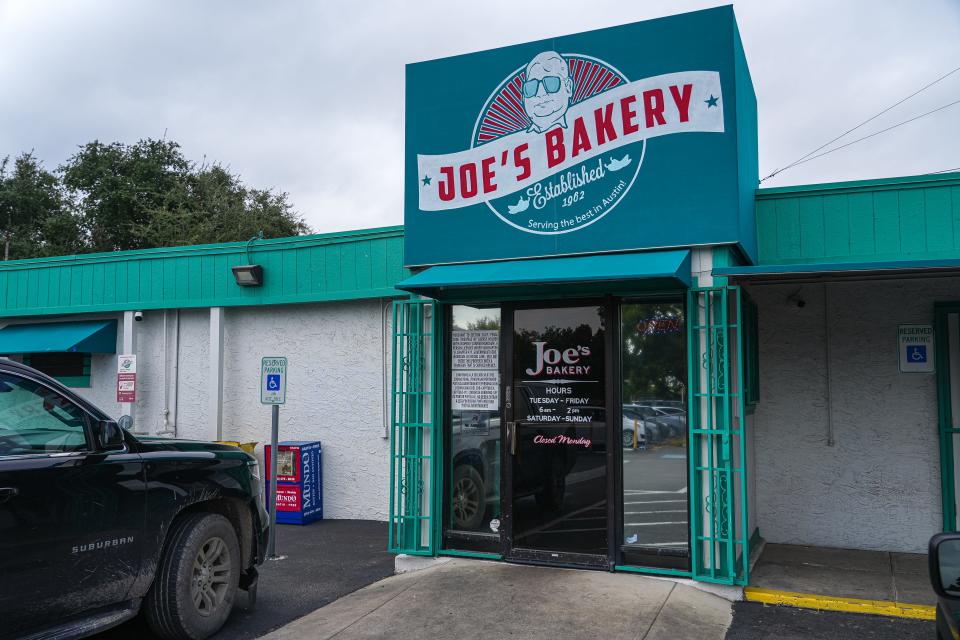
(2305 E. Seventh St. 512-472-0017, joesbakery.com)
Joe Avila no longer patrols the tiled floor of the restaurant he opened on East Seventh Street in 1962, but the recipe for success at Joe’s Bakery & Coffee Shop hasn’t changed over 61 years and his dream lives on.
Avila’s granddaughter, Regina Estrada runs the restaurant with her mother, Rose Maciel, and aunt, Carrie Avila, and credits the alchemy of three ingredients: people, community and food.
“We represent who we are and where we come from. We’re Mexican-Americans and we embrace our culture,” Estrada said. “And the food is simple. Some of the best food I’ve eaten is not the fanciest food, it’s just thoughtful and intentional in how it’s made. It’s very genuine. It reminds you of eating at grandma’s house.”
From 2009: Joe's is more than a bakery
For Estrada, Joe’s Bakery was essentially grandma’s house. She saw her grandfather (who died in 2011) and grandmother, Pauline, more at the restaurant than at their house a few blocks away on East Ninth Street.
Joe Avila embarked on his restaurant career as a child, delivering bread for La Oriental Grocery, a bakery which his mother, Sophia De La’O, and her husband, Florentino, ran out of their home. He eventually bought his family’s bakery, which had become Sun Bakery and moved to Seventh Street, and gave it the name it carries today.
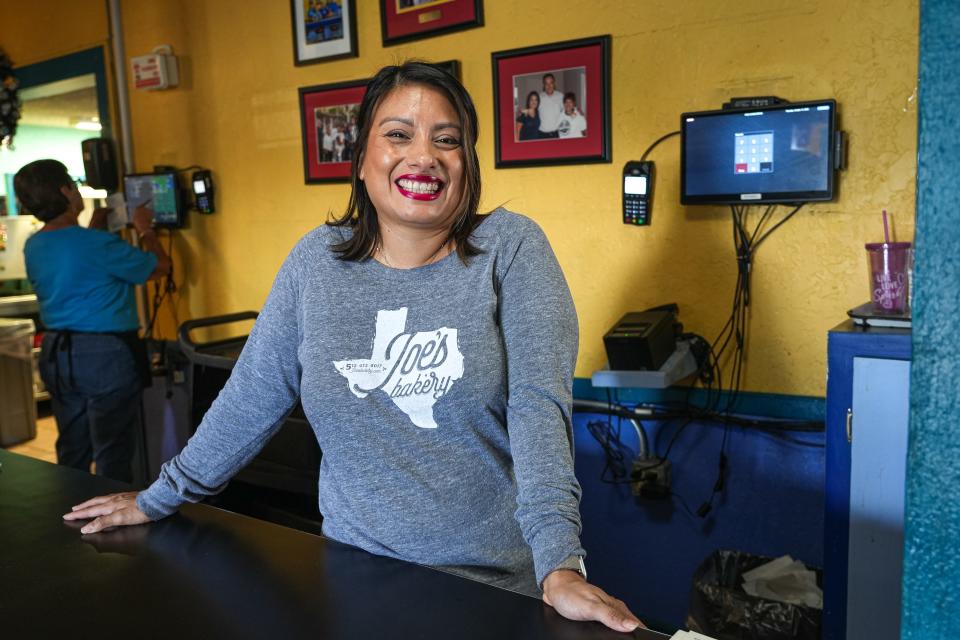
The bakery initially served only baked items like pan dulce and a simple menu of tacos, adding the enduring plates of huevos rancheros and pork-based carne guisada a couple of years later when Pauline left her job at H-E-B across town to help her husband run the family business.
“She realized he was at the restaurant all the time, so if she wanted to see him, she should just go work with him,” Estrada said.
The restaurant, with its timeless yellow booths and dangling papeles, served as a hub for the immigrant and Mexican-American community. Joe’s has served school groups and community organizations and welcomed generations of families for decades, and in more recent years became active in voter registration.
More: A generation of Black and Hispanic civil rights pioneers left Austin a better place
Campaigning politicians have long known that if they want to court the Hispanic vote, they should start at the restaurant founded by the Purple Heart recipient and Korean War veteran who served in the Army. While plenty of famous faces made (and still make) their pilgrimages to the restaurant, snapping photos that land on the walls, Joe’s was created to serve those politicians’ constituents, not the names on the ballot.
"The food is great, and the prices have always been reasonable. They always kept in mind the people in the community, in the barrio, and what they could afford,” family friend and regular customer Maria Canchola once told the American-Statesman about the restaurant named an America’s Classic by the James Beard Foundation in 2023.
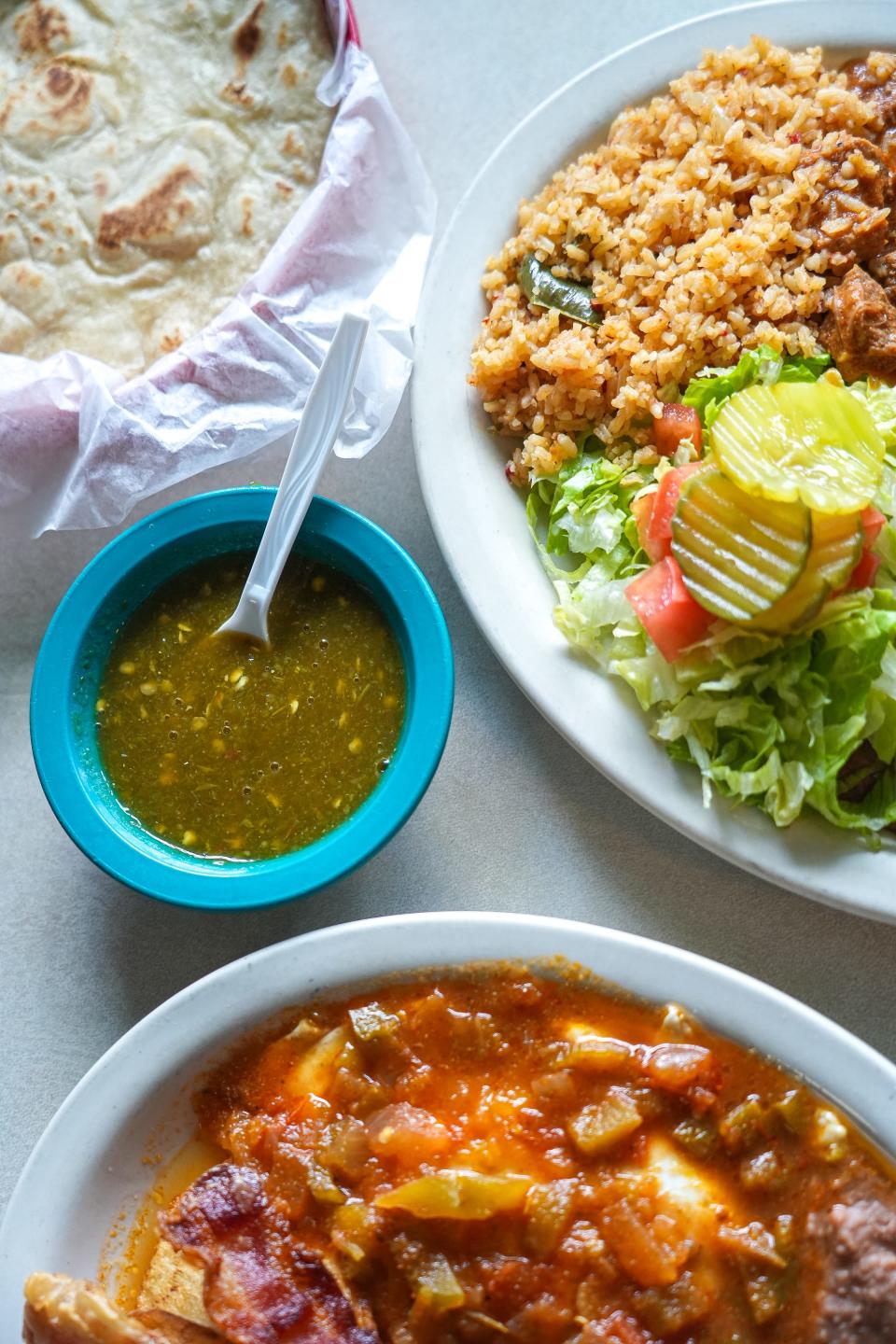
Estrada says her grandfather was a stern but warm man, one whose sense of humor and ability to connect with customers made him a popular fixture at the restaurant for decades. He stayed involved with the restaurant almost until the end of his life, baking Christmas pies for customers in 2010 just weeks before his death.
From 2011: Career of Joe's Bakery patriarch spanned 75 years
By the time the patriarch died, his daughter, Rose, had left her job at State Farm Insurance to continue the family legacy with her mother and sister. Estrada worked with her family’s matriarchs starting as a freshman at Austin High School, and occasionally helped out during her time at what was then Southwest Texas State University.
After graduating with a degree in political science, Estrada faced a minor existential dilemma. She could take her time trying to figure out a career path, or she could take the road back home.
“I always told my mother, I know I’m never going to get a chance to work with you and my aunt and my grandmother,” Estrada remembers. “If I leave, there may not be an opportunity to come back.”
The women formed a team that exists 20 years later. Pauline, 85, mostly avoids the restaurant following the coronavirus pandemic, and Carrie, likewise, chooses to operate mostly behind the scenes. But mother Rose and daughter Regina are regular presences, handling everything from serving food and negotiating with vendors to greeting familiar faces and registering new voters.
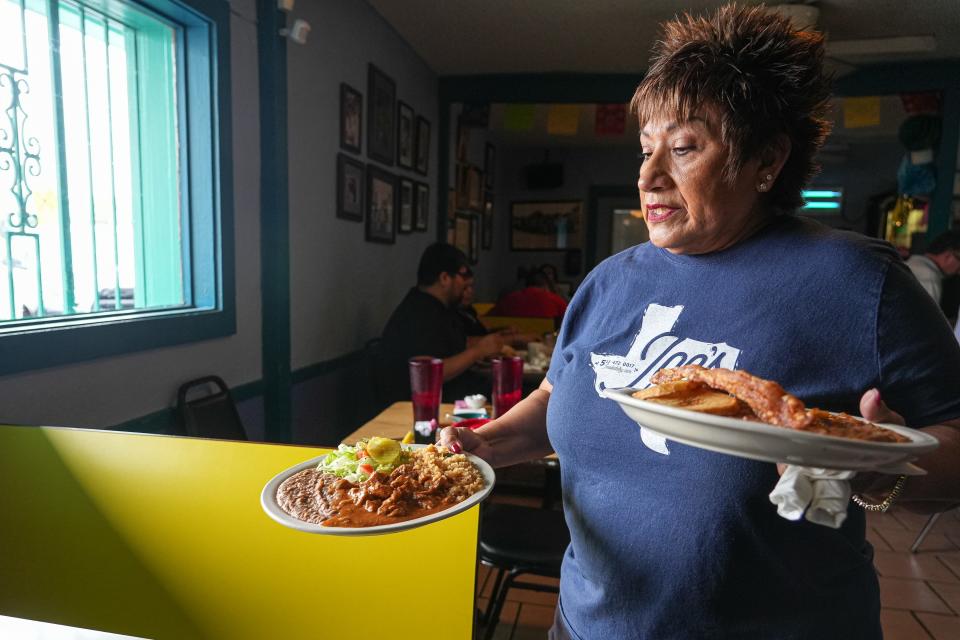
Estrada says her mom expertly plays “Good Cop” while daughter plays “Bad Cop,” and she can't imagine carrying on without her partner.
“Nobody would want me to do it if Rose wasn’t here,” Estrada said. “We balance each other out; we complement each other well. In anything you do, you need a partner.”
Estrada loves working with her mother and aunt and the flexibility the job has given her to be a hands-on mother of two teenage daughters, and family gives her purpose in her stewardship of Joe’s Bakery.
“I feel a responsibility to honor and acknowledge my grandfather’s dream and my grandmother’s support of that dream. It’s our family’s legacy and representation of my family,” Estrada said. “This wasn't my dream. This was my grandfather’s dream. This wasn’t my hard work, it was my mother and aunt’s hard work. They sacrificed a lot to be here. So my goal and my wish is to honor it and be a true representation of what my grandfather wanted it to be. We could always go bigger and better, but is that staying true to the origins? No, it’s not.”
Magnolia Cafe: 'You have to pay attention to people. You have to be involved.'
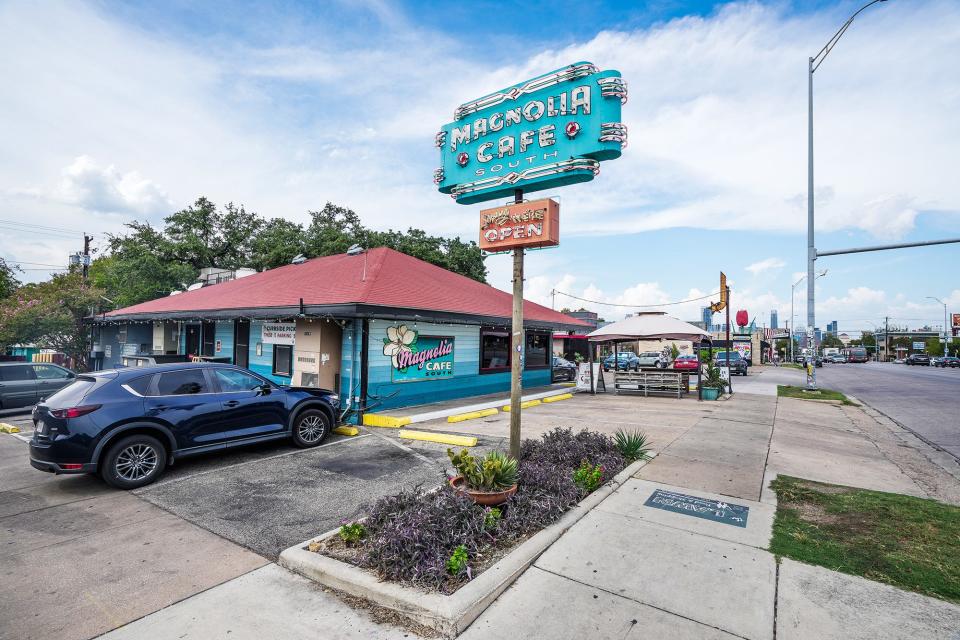
(1920 S. Congress Ave. 512-445-0000, magnoliacafeaustin.com)
As you’re waiting in line at Magnolia Cafe on South Congress Avenue, undoubtedly dreaming of a high stack of fluffy buttermilk pancakes or a fortifying serving of Mag Mud (a big serving of queso, beans, avocado and pico de gallo) a manager will check in with you to make sure being hangry isn’t getting the best of you, or bringing out the worst in you.
Would you like some fruit? How about a top off on your coffee? How’s your morning been going? She wants to make sure you’re hanging in there and that you know how things are flowing. She’ll tell you how the wait is progressing, and she or someone else will stop by your table later to ask questions that go beyond the usual, “How is everything?”
“We’re really nice to people. You don’t have to be mean. But you have to pay attention to people. You have to be involved,” owner Kent Cole told the American-Statesman over a late breakfast at his Austin icon. “We quietly, through example mostly, teach people to talk to each other, to talk to the customer, to be actually involved with what’s going on. Look at the table, that’s a story. Refer to their experience. The restaurant’s existence is what customers think of it.”
This kind of communal warmth and curiosity has always been a hallmark of the restaurant that opened on South Congress in 1988 and its predecessor that operated, first as Omelettry West, on Lake Austin Boulevard from 1979 to 2020.
That level of engagement might never have come to define Magnolia if it wasn’t for the dissolution of Cole’s first marriage. After he and his wife and early business partner, Patricia Smith, got divorced, around 1980, Cole found himself at sea and in need of connection. So, he started asking questions. Of customers in his restaurant, strangers on the bus, dinner dates, the person next to him at the grocery store. Everyone.
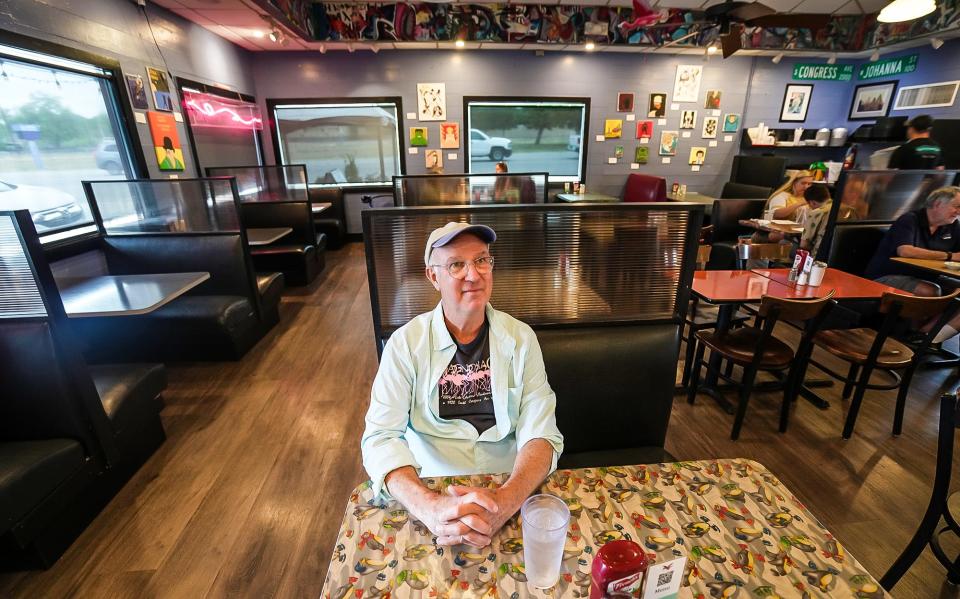
“Whatever nest a marriage is is gone, and I had to build my own social life. So I found myself asking questions and not talking,” Cole said. “How many times are you asked a question and people actually listen to you? It became my modus operandi, and to this day I really recommend it to everybody. People want to be listened to.”
Extrapolating on that idea, a few years after opening Omelettry West, which became Magnolia Cafe in 1987 after Cole bought out his other partner, Omelettry founder Ken Carpenter, the restaurant featured questionnaires that served as conversation starters and at times personal investigation. Grab a blank themed questionnaire — one week it might be a dozen questions about science, the next an investigation into the meaning and utility of pockets — fill it out and return it to the box after your meal. Also grab an anonymously answered questionnaire from another box and take it to your table as conversation kindling.
More: Reader's Digest names Magnolia Cafe in Austin the most iconic diner in Texas
The rhetorical device and the restaurant’s trademark flamingo printed on most of the questionnaires pointed to Cole’s time in the art freak community of bohemians in the Montrose area of Houston in the mid-1970s. The Austin native, who spent his adolescence in Baton Rouge before rushing back home as fast as he could, moved to Houston after a few semesters studying English literature at the University of Texas.
He had visited Houston with some bandmates — Cole is a guitar player who bounced around everything from jazz to punk in his formative years — and met a woman at a party in one of those classic Houston mansions in decline. He moved there a week later and eventually married Patricia, his first wife.
“We had an extended adolescence in Houston for about four years where we did theater and music, and at a certain point it was time to stop,” Cole said. “Then it was time to get with the program.”
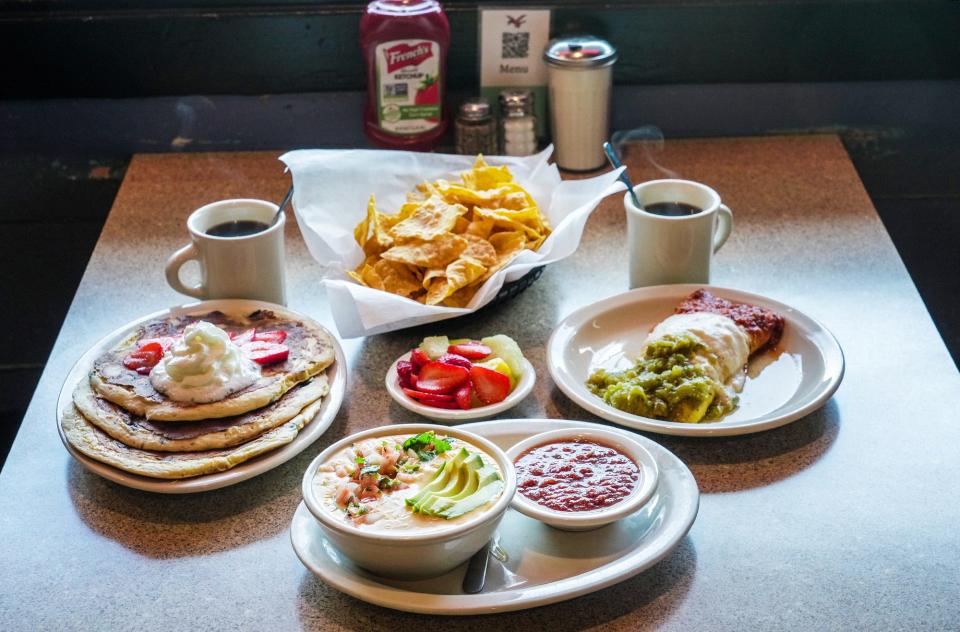
They moved back to Austin with Cole planning to finish college. It didn’t take. But Cole’s timing proved fortuitous, as it would for decades to come. A buddy was interested in a woman working at a restaurant and wanted Cole to tag along to pay her a visit. The restaurant was the recently opened Omelettry on Burnet Road. When the door opened, it was to more than just a restaurant serving diner classics.
“I felt I had come home,” Cole said. “Relaxed, unassuming, funky people more like myself than on Sixth Street. I just felt that I had found my people.”
Pancakes, bagels and migas: These are the best breakfasts in Austin
He and Patricia applied for jobs and within three months Carpenter approached them about opening a second location on Lake Austin Boulevard.
“Why he asked us, I’ll never know,” said Cole, who agreed to manage the new venture as long as they could have a stake in ownership.
Patricia left not long after Omelettry West opened, departing with fellow cook David Ayer to eventually marry and open up Kerbey Lane Cafe, which they own to this day. Cole bought out Carpenter in 1987 and haphazardly changed the name to Magnolia Cafe, originally intending to name it in honor of the legendary Camellia Grill in New Orleans.
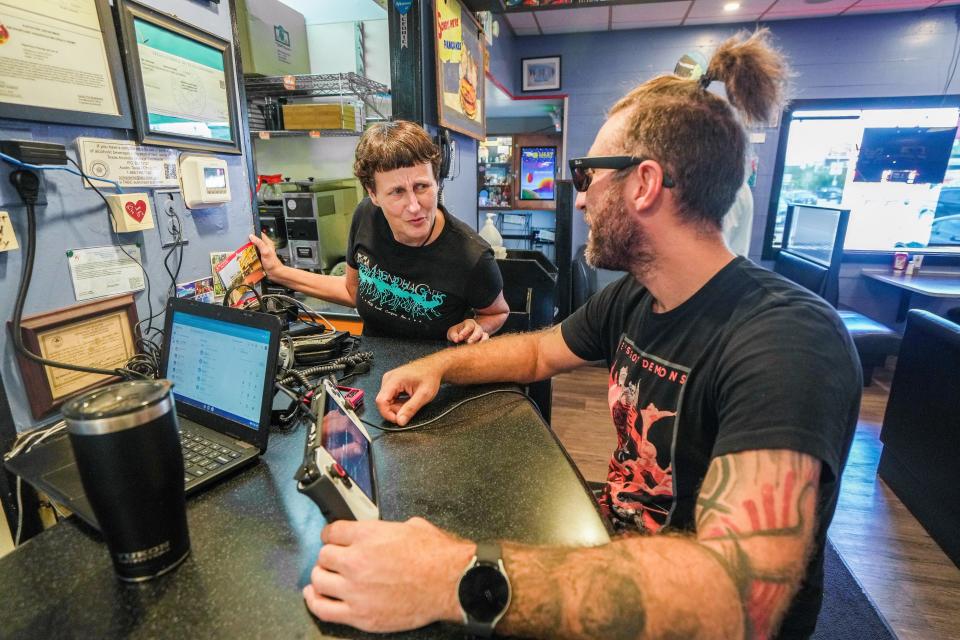
The expansion to a part of South Congress Avenue that was home to prostitutes and drug dealers also came by chance. Cole and an investor were looking for a space for a second location and the landlord of the building at 1920 S. Congress Ave. reached out with an offer to lease.
The early years on SoCo were lean. Cole worked kitchen shifts and saw his restaurant lose money, as the Lake Austin location kept it afloat. The pay phone had to be moved from inside the restaurant to a space out front so drugs deals would not be conducted in front of families looking to share a burger.
But good timing and luck were once again on his side. His investor happily accepted a buyout after a few years, and the Savings and Loan scandal that rocked the economy led Cole’s landlord to sell the property that is now worth seven figures to Cole and his wife, Diana Prechter. Prechter would go on to create and run the neighboring gift shop, Prima Dora, from 2000 to 2006.
As the economy regained its footing, Austin started booming in the mid-1990s, with a proliferation of nightlife that led Cole to increase hours incrementally until Magnolia finally became the 24-hour destination institution that it is today.
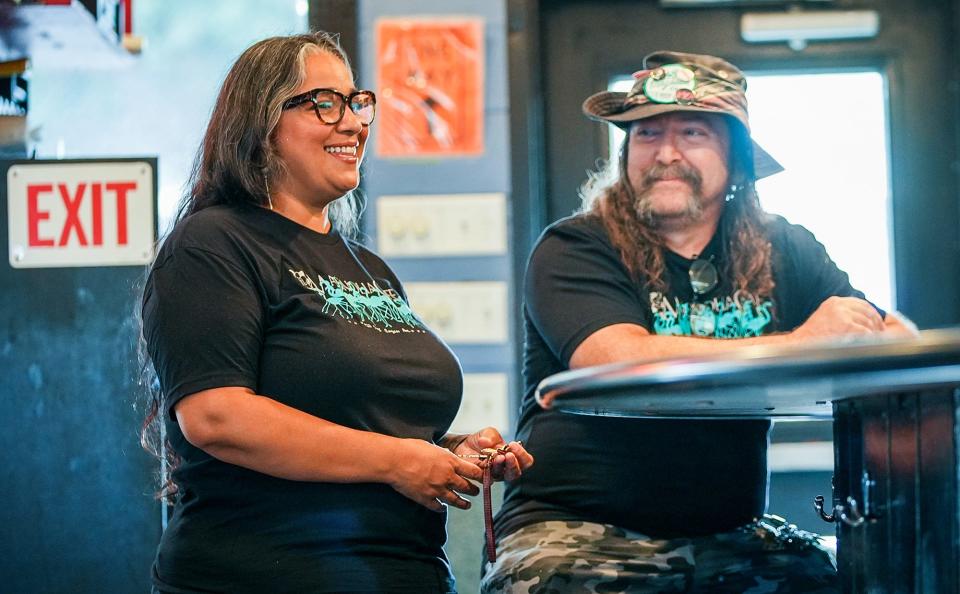
Magnolia’s “Better late than ever” and “24 Hours a Day — 8 Days Week” advertising campaigns featuring local luminaries like musician Toni Price and artist Jim Franklin proliferated in the pages of the Austin Chronicle, and the two locations of Magnolia Cafe were slowly woven into the fabric of Austin culture.
Magnolia has always felt like the type of place where all are welcome. Where you can find tables with police officers, drunk clubgoers, families and more colorful sorts, often all dining at the same time. The restaurant has always been held together by longtime staff who share a familial bond, figuratively and literally. General manager Amanda Clark and her husband and Magnolia head cook Ernie aren’t the first pair of Magnolia co-workers to tie the knot; and at least six members of the Medina family have worked in the kitchen on South Congress.
Clark has seen very little change over her 15 years at the restaurant where she began as a hostess (fortunately for all, one of those things was the carpeted dining room floor). She believes the restaurant’s timelessness and the role it has played in the lives of generations of Austin diners have made Magnolia a staple in the community.
“I see it in our longtime regulars. The people who are uncomfortable with the change that is happening here in Austin, they come here to feel good about it,” Clark said. “Because they’re like, ‘You guys are the same; this place is the same. When we want to feel connected to a smaller community of Austin people, this is it.’”
The Austin360 Restaurant Hall of Fame
Our hall of fame launched in 2021 with these 5 classic restaurants:
Chinatown
Dirty Martin's
Fonda San Miguel
Hoover's Cooking
Matt's El Rancho
In 2022, we inducted 3 more:
Cisco's
Dan's Hamburgers
Wink
This article originally appeared on Austin American-Statesman: 3 iconic Austin restaurants join Austin360 Restaurant Hall of Fame 2023

